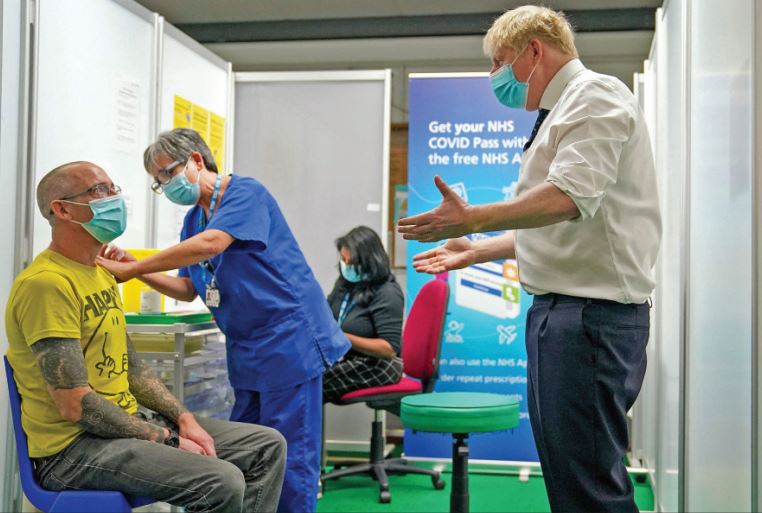Health service 'critical' as COVID-19 hits staff
By JULIAN SHEA in London | China Daily Global | Updated: 2022-01-05 10:24

Six National Health Service hospital trusts across England have declared critical incident status because of on-going staff shortages caused by the coronavirus pandemic.
That is the term used to indicate services coming under such high levels of pressure that trusts will struggle to supply priority services.
The latest trust to make the announcement is University Hospitals of Morecambe Bay, serving Lancashire and South Cumbria in the Northwest of England.
In a tweet, trust chief executive Aaron Cummins said the announcement "allows us to be able to take additional steps to maintain safe services for our patients and help us cope with the growing pressures.
"Sadly, despite everyone's best efforts, many of our patients are still receiving a level of care and experience that falls below the level of standards we would like," he added, warning that non-urgent operations would have to be suspended temporarily to enable services to be restored.
In some hospitals, patient visits have been canceled in a bid to stop the spread of the Omicron variant, and the chief executive of the NHS Confederation, Matthew Taylor, said many parts of the health service "are currently in a state of crisis".
"Some hospitals are making urgent calls to exhausted staff to give up rest days and leave to enable them to sustain core services," he wrote in a blog.
However, a sliver of hope for the future has been offered by Andrew Pollard, chief investigator of the Oxford coronavirus vaccine trials and a key player in the development of the AstraZeneca vaccine in 2020.
In an interview with the Daily Telegraph, he expressed cautious optimism about the future outlook of the pandemic.
"The worst is absolutely behind us. We just need to get through the winter," he said.
When questioned about Prime Minister Boris Johnson's current light-touch handling of the crisis in England, and his refusal to implement tighter restrictions, a move that has sharply divided opinion, Pollard said:" (It) seems to be working so far. The system isn't falling over. But it's finely balanced.
"We can't fully answer whether he's got it right for some time."
Johnson has said that the Omicron variant is "plainly milder "than previous variants, but it would be "folly" to say the pandemic was over and tone down measures, as the current strain on the NHS was showing.
"I think we've got to recognize that the pressure on our NHS, on our hospitals, is going to be considerable in the course of the next couple of weeks, and maybe more," he said.
As many people return to work following the Christmas holiday, some business leaders have called for the seven day self-isolation period for people who test positive to be reduced to five, as is the case in the United States, to avoid staffing problems.
But speaking on Good Morning Britain, Chris Hopson, the chief executive of NHS Providers, said that while he sympathized, the medical establishment could not support such a move because of the risks posed by people returning to work while still infected.
"All the evidence suggests that you cannot guarantee that after five days people won't be infectious," he said.
"Whilst chief executives might want people back they also know they've got a very important duty to protect the vulnerable people in their care.
"So they're pretty clear, unless the science can absolutely reassure everybody that it's totally safe to come down to five days, they're not in favour of that."
























